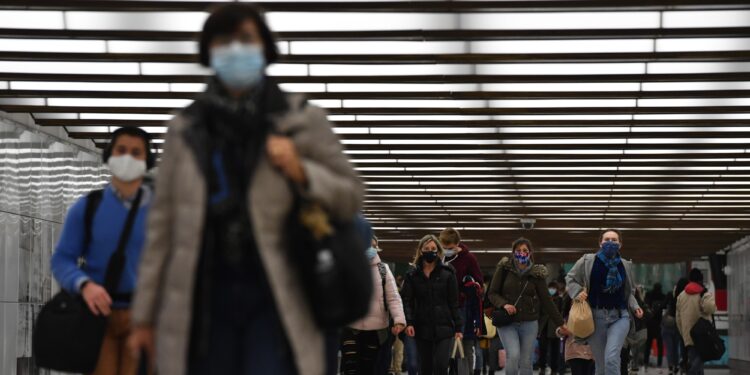From Monday 7 March, the corona barometer will be yellow. This means that almost all corona measures will disappear. The Covid Safe Ticket will no longer apply from Monday and face masks will no longer be mandatory in most places.
New relaxations will come into effect from Monday. The Government Consultation Committee met on Friday afternoon to discuss the easing. It had already become clear earlier that the governments would decide to put the corona barometer on yellow, although the number of hospital admissions is still above the threshold of 65 per day with an average of 144 on March 3.
According to the corona barometer, code yellow would only come into effect with fewer than 65 hospital admissions per day and fewer than 300 patients in intensive care. Only the latter is the case. The National Crisis Centre expects a division below 65 hospital admissions by March 20.
However, code yellow will apply from Monday, Prime Minister Alexander De Croo (Open VLD) confirmed during the press conference after the Consultation Committee. This means that from then on there will be virtually no restrictions.
The Covid Safe Ticket will no longer apply in any sector. There will no longer be audience restrictions at concerts and other events, but CO2 metres will remain mandatory at certain indoor events.
Broad face mask obligation disappears
Furthermore, the face mask obligation will disappear as well everywhere from Monday. Face masks will no longer be mandatory in education as well as in shops. “That means that teachers and students can come back from their holiday with fresh air from Monday,” says De Croo. Face masks will only remain mandatory for a while in public transport and in the healthcare sector.
FFP2 masks are still recommended for medically vulnerable groups. After all, unlike ordinary mouth caps, they also protect the wearer. “In places where it is not possible to keep distance, where people gather in crowded indoor spaces, it is still recommended to wear a face mask,” the prime minister said.
End of federal phase
The prime minister also announced the end of the federal crisis management phase at the press conference. “As of the end of next week, we will no longer be in an emergency situation. That means the end of the federal phase on March 13, exactly two years after its entry into force.”
“Nobody knows how autumn will evolve, but by the end of next week we can leave the federal phase behind us,” said the prime minister. “It’s an important page that we are turning, a symbol of our resilience.” The prime minister once again thanked all kinds of population groups, from healthcare workers to volunteers and people in the logistics sector, for the “monumental efforts” they have made.
Vervoort: ‘Time for optimism’
Brussels Minister-President Rudi Vervoort (PS) attended the press conference “with mixed feelings.” “After two years of meeting and tackling challenges – each time we thought the end was in sight and then the next wave came – it is undoubtedly time for optimism,” said Vervoort. “Now we are gradually coming out.”
But although the epidemiological situation is optimistic, the Brussels Minister-President realises that the socio-economic consequences of the corona pandemic will be felt for some time to come. “In the coming weeks, it will remain important to provide economic support for the hard-hit sectors, such as the culture, events and hotel sectors. We remain on their side.”






